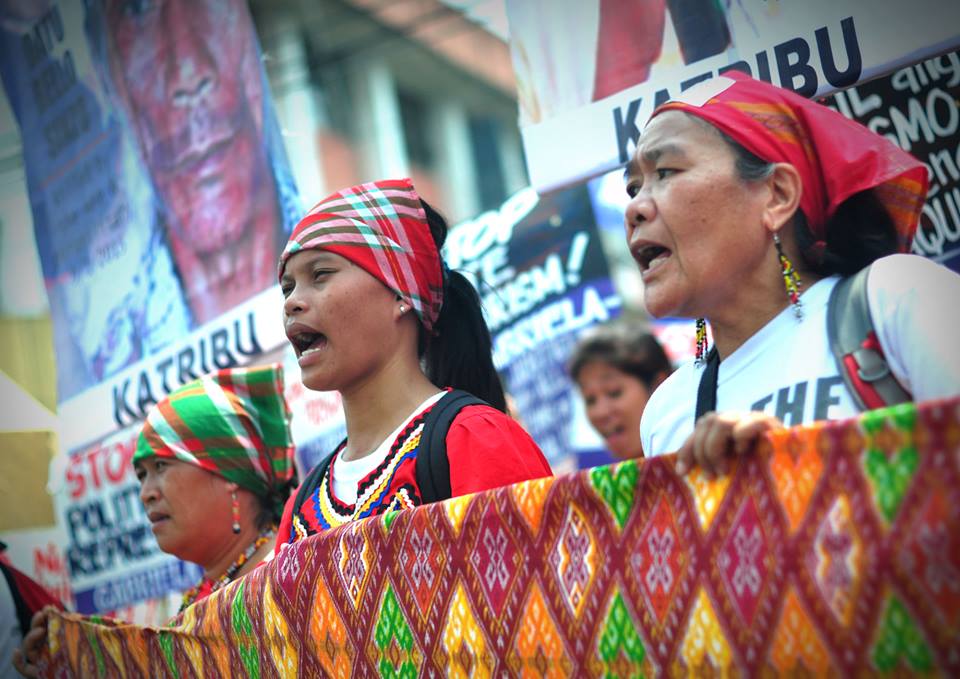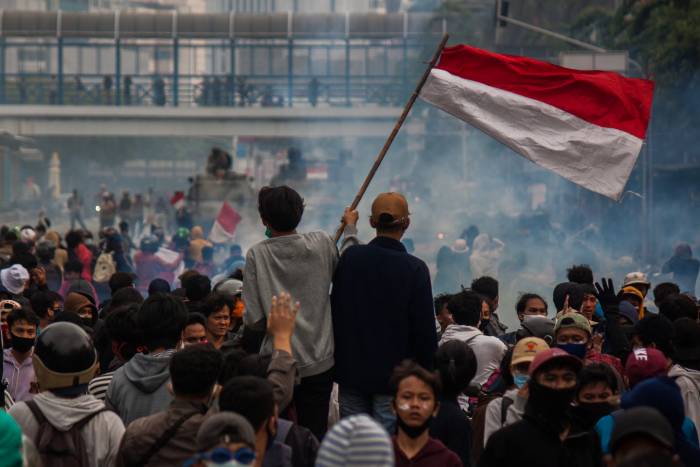Pascale Hunt
Democracy is a concept that is easily romanticized, often weaponized, and at times used to describe systems to which it may no longer be deserving. In theory, it is used to denote a government that adheres to a particular set of characteristics and practices: free, fair and competitive elections between distinct parties; a separation of powers between the legislative, executive and judicial branches; the rule of law; the protection of human rights, civil rights, and civil liberties; and political freedom for all individuals. In political philosophy, it is “rule by consent of the ruled”.
But democracy isn’t one-size-fits-all. While liberal democracy is held up in Western discourse as the gold standard — famously characterized in 1989 by Francis Fukuyama as ‘the end of history’, nation-states across the globe which, on paper, are democracies, have evolved across time in their own distinct ways, influenced by myriad contextually specific religious and cultural practices, diverse experiences with colonialism and imperialism, positions within the global political economic system, and geographical idiosyncrasies.
The slogan “of the people, by the people, for the people”, implies a much more inclusive, equitable, and just reality than is largely the case in most contexts. The historical process of state creation left certain coalitions of individuals behind — stateless people became asylum seekers, and marginalized people within states continue to be repressed, colonized, and displaced. The “for the people” part of the slogan is particularly questionable in today’s globalized economies, where neoliberalism has in many cases become synonymous with democracy.

Michelle (center) with the Lumad communities protesting against the killings in Mindanao. (c) Pinoy Weekly, September 2015
This interchangeability is especially accepted by some of the world’s most supposedly robust democracies, who justify interventions into territories not their own on the pretext of upholding democratic ideals and human rights. But these states themselves largely fail to live up to their own supposed ideals, and warrant their own fair share of scrutiny when it comes to the legitimacy of their titles. The extent to which electoral participation that occurs every four years — for the most part between two dominating parties, whose ideological differences in many ways are aligned, and who are often accountable to a shared pool of corporations for campaign donations — constitutes true democratic participation, should be questioned.
Furthermore, in the context of domestic media environments that function largely as corporate or partisan propaganda and the proliferation of new-media misinformation and disinformation in recent years, the consent bestowed upon elected officials electorally is often fairly perceived by those whose interests are unrepresented in popular discourse as a consent that is manufactured.
In the context of the climate crisis — an issue that transcends the confines of any singular governing system — we put significant power in regional and international bodies and institutions which are themselves non-democratic. The G20, World Bank, International Monetary Fund, ASEAN, along with COP 26 just around the corner, are not represented equally, and not all votes carry the same weight. Nevertheless, these international bodies are unquestionably necessary instruments in our global movement to confront climate change. Achieving the targets set out in the Paris Agreement requires a media and information ecosystem that empowers public understanding of climate issues, as well as empowered participation in decision making processes at COP 26 for the world’s most vulnerable countries.
“In democratic countries, [political imperatives] are bound to be deeply shaped by short-term factors, which often constrain their political space and push them away from climate action,” writes Rafael Jimene Aybar in Global Policy Journal.“
In 2012, the Work Programme on Action for Climate Empowerment (ACE) programme adopted in Doha emphasized the critical role played by civil society in addressing the climate crisis. Comprised of education, training, public awareness, access to information, public participation and international cooperation, the programme sought to democratize climate policy decision making and is set to be updated at COP26 with a new multi-annual work programme.
While many countries across Asia continue to experience exponential economic growth, increased and more severe climate-induced weather events are becoming more and more frequent. Droughts, heatwaves, and typhoons have resulted in significant loss and damage across the region in the last decade alone, with the Internal Displacement Monitoring Center estimating that 32 million people in Southeast Asia experienced displacement as a result of weather-related natural disasters in the four years between 2015 and 2019. Last month’s IPCC report set out predictions for continuing severe climate impacts for the region, which will, in turn, bring about flow-on implications for regional stability and human security impacts within states.
Civil disobedience, protest, and collective actions are indispensable means of expressing dissent and broadening the political discourse to make room for the contentions — be they political, environmental, or social — that governments of all stripes too often fail to address within their limited paradigms.
Freedom House’s Freedom in the World 2021 Report found a decline in democratic functions across the world in the last twelve months, a trend that has been underway now for 15 consecutive years. While in some cases, the Covid-19 pandemic was weaponized to stifle freedom of assembly, movement and other civil liberties, there was an increase in deadly attacks against activists and environmental defenders worldwide. These incidents disproportionately impacted the Global South, and more than a third were perpetrated against Indigenous Peoples who make up only 5% of the global population.
A recent study indicated that ‘dominant party systems’ — those which look like democracies but function as autocracies — have increased from around 13% of countries during the Cold War to around 33% today, and are mostly, but not exclusively, located in Asia, Africa, and the Middle East.
Global Witness reported this week that 2020 was the worst year on record for global killings of environmental activists. “As the climate crisis deepens, forest fires rampage across swathes of the planet, drought destroys farmland, and floods leave thousands dead, the situation for frontline communities and defenders of the Earth is getting worse”, the report said.
FIRST IN ASIA, THIRD WORLDWIDE. This is the Philippines’ ranking for the most number of killed land rights and environmental advocates in 2020, according to an environmental watchdog.
READ: https://t.co/GYkxAtCepL pic.twitter.com/dJC6B1pd61
— Inquirer (@inquirerdotnet) September 13, 2021
The Philippines came in as the third deadliest nation in the world for environmental defenders, and remains the deadliest in Asia. Communities in the Philippines, who are some of the most vulnerable to climate change impacts, find themselves on the frontlines of the struggle for climate justice in the face of forced displacement through land grabs driven by corporate resource imperialism. Mining, logging, and agribusiness are major industries that threaten the self-determination of communities across the country and the environment they steward.
350 Pilipinas and its partner organizations in the country are running a live petition, calling for President Rodrigo Duterte to repeal the Anti-Terrorism Act of 2020 in solidarity with the Filipino environmental defenders and climate protectors who it endangers. The law constitutes a significant blow to already-lax human rights protections in the country. The law permits authorities to detain suspects for up to 24 days without charges, arrests in the absence of a warrant, and severely hinders freedom of assembly and expression, with minimal checks and balances on law enforcement accountability.
Another disturbing development that occurred in 2020 was the Indonesian government’s passing of the controversial ‘Omnibus Bill’, a piece of legislation with sweeping impacts for human rights and the environment based on the weakening of 77 existing development-related laws intended to make the country more appealing to investors. Threatening the rights of Indigenous Peoples, workers, fishers, and farmers, it opens the floodgates for corporations to ramp up resource extraction with even fewer requirements to obtain proper permits or adhere to environmental regulations. Under the Omnibus law, where environmental impact assessments are required, they will be permitted to be conducted by commissions appointed by the corporate party, all but ensuring irreconcilable conflicts of interest.

Omnibus Law protest, October 2020. Photo credit: @anomanpasha on Instagram
One of the most disturbing aspects of the Omnibus Law is the lack of transparency involved in its design and the lack of opportunity for any meaningful public participation in its implementation. For a week after the law was passed, the public was unable to access the contents of the legislation. The passing of the law sparked protests across the country in dozens of cities, resulting in the arrest of more than 1000 individuals and multiple instances of police brutality. 350 Indonesia is hosting a petition demanding the law be immediately cancelled.
350 Indonesia Team Lead Sisilia Nurmala Dewi said:
“We need a genuine democracy in Indonesia that goes beyond just elections — civil and political rights need to be protected in the running of the government as well. They are key to the realization of climate justice, especially because the elites and the oligarchs who also run the country through the executives and parliament have vested economic interests in continuing to burn fossil fuels.”
Like democratization, the realisation of climate justice requires nuance — the acknowledgement of the significance of inherited historical contexts, regulatory practices, and ongoing political struggles. It should be continually examined, redefined, and reasserted to meet evolving circumstances. Without continuous pressure — to dismantle existing social, historical, and geographical injustices, and improve democratic systems so that they uphold human rights, free political participation, and access to accountability — poorly informed ‘solutions’ and state-led responses to the climate crisis have the potential to exacerbate existing paradigms.
On World Democracy Day 2021, considering the state of the current climate crisis that transcends the limitations of any individual democracy — perhaps we can be more specific. As non-state actors such as multinational corporations hold unprecedented control over our governing systems and collective futures, they demand constant pressure, scrutiny, and challenges. The practice of ‘monitory democracy’ — involving continuous, collective interrogation of arbitrary and unjustified power — is more important than ever.
